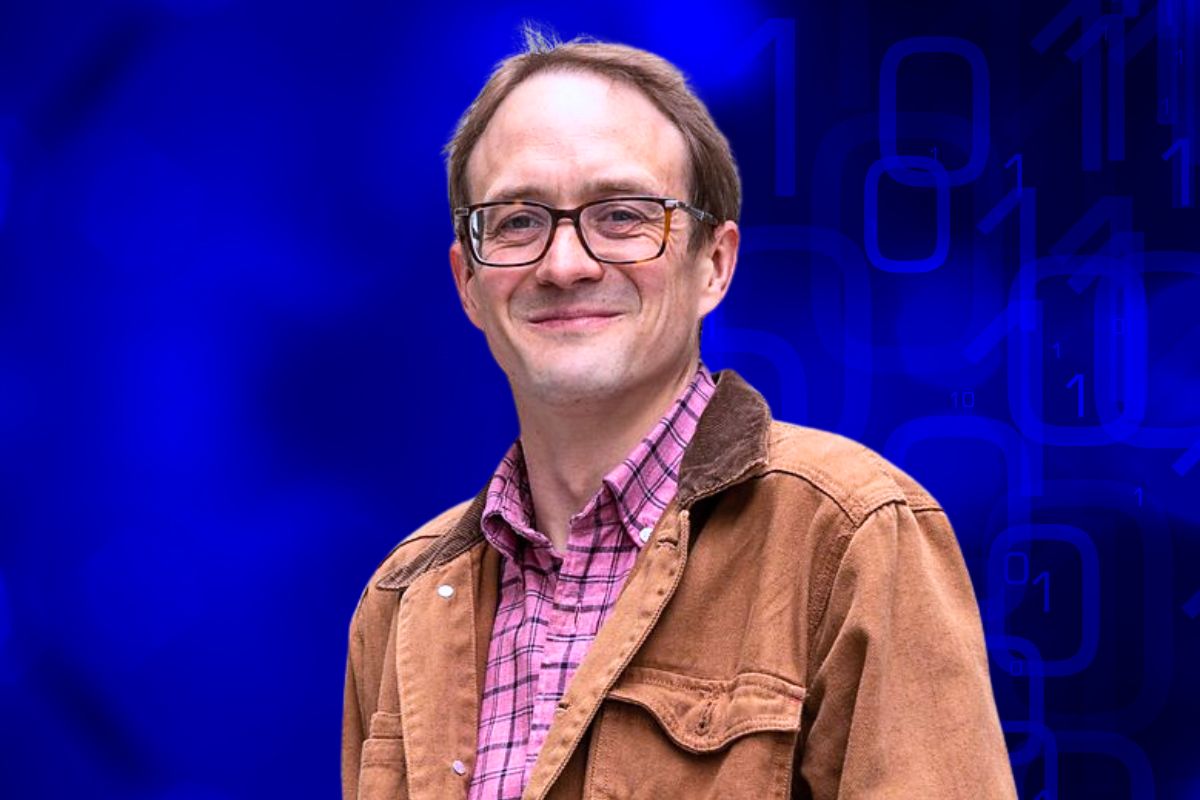Chris Mason is the person you see on BBC News grilling politicians when they’d rather be literally anywhere else. He’s been the BBC’s political editor since May 2022, in essence meaning he has to explain away Westminster chaos for the rest of us.
You’ve likely seen him outside Number 10 in all weathers, trying to explain why Parliament’s latest dramatics actually matter to normal people. Or on hosting Newscast, that podcast in which he and his mates talk about politics like they’re down the pub.
Born on 21 April 1980, Chris Mason is now 45 and has been at the BBC for over two decades. That’s a long time dealing with politicians avoiding questions.
Where He Started
Chris Mason did not come out of nowhere to get the BBC’s top political job. He’s from Steeton with Eastburn in West Yorkshire, making him a proper Yorkshire lad. The type who appeared on Celebrity Mastermind and chose the Yorkshire Dales as his speciality. That is dedication to your roots.
He went to university at Christ’s College, Cambridge, reading geography in 1998. He then went on to complete a Postgraduate Diploma in Broadcast Journalism at City, University of London, from 2001 to 2002. Standard journalist training route, nothing fancy.
After training, he started at ITN in 2001, spent a year there, then moved to BBC Newcastle before ending up at Westminster. Worked his way up properly rather than landing a big job straight off.
The Career Path
Mason spent two years in Brussels as Europe Correspondent, which sounds glamorous until you remind yourself that it’s about going to EU meetings that would bore the legs off a table. He then moved to Radio 5 Live as one of their political reporters before joining BBC News as a political correspondent in 2012.
Before his promotion, he spent ten years as a political correspondent. That’s a decade of standing in the rain outside Parliament making reports about stuff that most people stopped caring about after watching for five minutes.
Chris Mason was announced as the successor to Laura Kuenssberg as Political Editor of the BBC in April 2022. Big shoes to fill, considering she had become a household name. But he’d been doing the job for years already, just without the fancy title.
What We Actually Know About Him
Here’s where it gets tricky. Chris Mason keeps his private life properly private, which is fair enough given he’s in the public eye professionally.
‘Chris Mason journalist wife’ is a question loads of people Google. He’s married to Polly Mason, who’s a primary school teacher. They’ve got two children and live in Charlton, south-east London. That’s about all anyone knows because he doesn’t plaster his family all over social media.
Good on him, honestly. Enough journalists treat Twitter like their personal diary. Mason keeps work and home separate, which probably keeps him sane.
The Money Question
Chris Mason’s salary is something people are dead curious about. The BBC has to publish what it pays people in certain salary brackets. Political Editor is a six-figure salary job, which sounds brilliant until you remember he’s on call basically 24/7 and gets shouted at by keyboard warriors from all political sides.
Is it fair he earns that much? Mate, have you seen how much stick he gets online? People from both left and right reckon he’s biased against them, which probably means he’s doing his job properly.
The Impartiality Question
Is Chris Mason a Labour supporter? Is he a Tory? A Lib Dem? Secretly UKIP?
The answer’s boring: nobody knows because he doesn’t say. That’s literally his job: being impartial. Every BBC political editor gets accused of bias by everyone. Kuenssberg got it. Andrew Marr got it before her. It comes with the territory.
Chris Mason political views are kept under wraps because broadcasting impartiality rules mean he can’t go around spouting his personal opinions. He asks the questions, politicians give the answers (or more often, don’t), and we all make up our own minds.
Anyone claiming to know his political views is talking rubbish. He votes, presumably, but keeps his ballot paper to himself like most sensible people.
The Yorkshire Connection
Chris Mason calls himself a “dalesman” and genuinely loves the Yorkshire Dales. Not just saying it for the cameras; he picked it as his Mastermind subject and finished second, which means he actually knows his stuff.
There’s something quite endearing about a bloke who’s made it to the top of BBC political journalism but still bangs on about Yorkshire. Shows he hasn’t completely disappeared up his own backside, which is a risk in that job.
What Makes Him Different
Compare Chris Mason to some previous political editors and he comes across as more… normal? Less stern newsreader, more person you might actually chat to.
His podcast Newscast (previously called Brexitcast during the Brexit years, when we all wanted to throw our radios out the window) is basically him and other journalists having proper conversations about politics. They laugh, they disagree, and they admit when they don’t know something. Revolutionary for political coverage, apparently.
He presents Any Questions on Radio 4 too, which requires keeping angry audience members in line whilst politicians dodge every question. Harder than it looks, that.
The Reality of the Job
Being BBC Political Editor in 2025 looks mental. You’re covering a government that changes policies faster than most people change their socks. Labour’s in power after fourteen years of the Tories, which means learning a whole new set of politicians and their habits.
Plus, social media means every slight emphasis on a word gets picked apart by people convinced you’re part of some grand conspiracy. Must be exhausting.
Chris Mason seems to handle it by keeping his head down, doing the work, and not getting into Twitter fights with randos who reckon they know better.
Why He Matters
Political editors matter because most of us don’t have time to watch six hours of Parliament TV daily. We need someone to watch the boring bits, spot the important stuff, and explain it without sending us to sleep.
Chris Mason does that job while trying to keep everyone from all sides roughly equally annoyed with him. This, let’s be honest, is the best anyone can hope for in political journalism these days.
He’s been doing it for three years now and hasn’t completely lost the plot yet, which frankly deserves some credit.
He is not the flashiest journalist you’ll ever see. Not the most controversial. Just a bloke from Yorkshire who asks politicians questions they’d rather not answer and explains the answers to the rest of us.
Could be worse, really.








